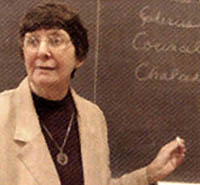A high powered theological commission, the International Theological Commission (ITC) gave a detailed definition to what Catholics mean when they say they have, or employ, a sensus fidei in Church life. Over the last decades various meanings have surfaced, and not all of them are correct. The ITC has stated in another place, “Catholic theology speaks the truth in love, so that the faithful may mature in faith, and not be ‘tossed to and fro and blown about by every wind of doctrine.’”
The focus of “Sensus Fidei in the Life of the Church“ historical method identifies (discerns) the authentic contributions to the sensus fidei, by two criteria: conformity to the apostolic tradition and active participation.
Concluding the 85th session of the The International Theological Commission, released a new document . “Sensus Fidei in the Life of the Church” deals with the role of sensus fidei (the sense of the faithful) in the Church. There was one American on the sub commission that produced the “Sensus Fidei, Sister Sara Butler, M.S.B.T. (a former professor of mine).
The Catholic understanding of the sensus fidei “does not consist solely or necessarily in the consensus of the faithful. Following Christ, the Church seeks the truth, which is not always the same as the majority opinion. The Church values sociological and statistical research when it proves helpful in understanding the historical context in which pastoral action has to be developed and when it leads to a better understanding of the truth. Such research alone, however,” he insists, “is not to be considered in itself an expression of the sense of faith.” That was Pope John Paul II said. His successor the emeritus Pope Benedict XVI taught, “It is particularly important today to clarify the criteria used to distinguish the authentic sensus fidelium from its counterfeits. In fact, it is not some kind of public opinion of the Church, and it is unthinkable to mention it in order to challenge the teachings of the Magisterium, this is because the sensus fidei cannot grow authentically in the believer except to the extent in which he or she fully participates in the life of the Church, and this requires a responsible adherence to her Magisterium.”
As a technical term, sensus fidei describes the our ability as members of the Mystical Body of Christ, the Church, to discern how the Gospel of Jesus Christ is lived. The document’s works with with the survey sent to national episcopal conferences on the Synod of the Family.
